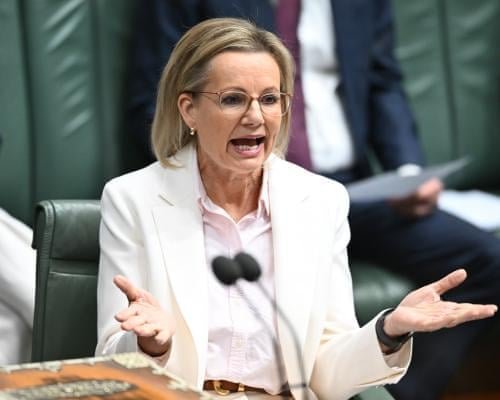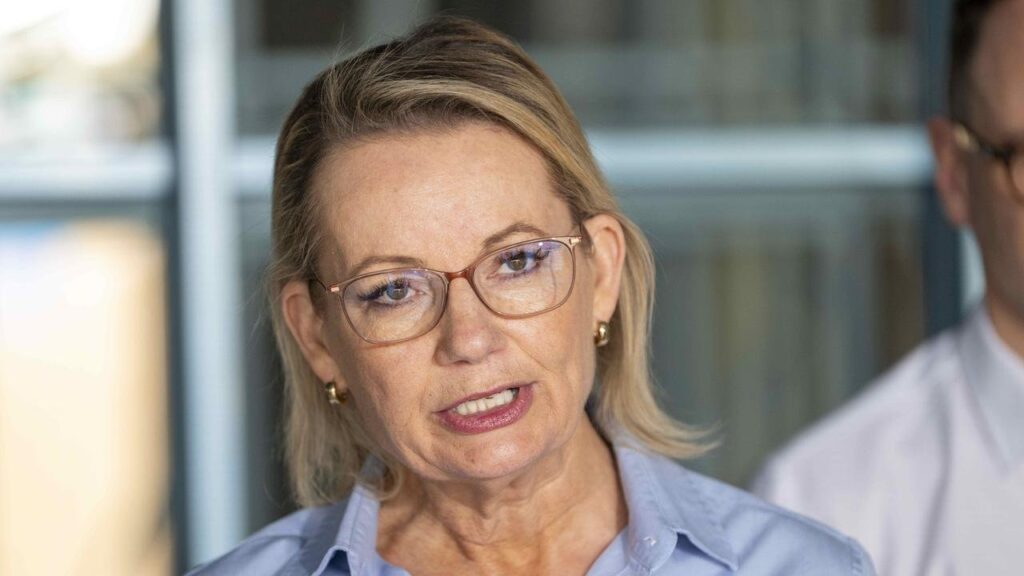Government ‘Games’ Thwart Opposition Leader’s Visit to ‘Unviable’ Aluminium Smelter: Sussan Ley Fumes as 1,000 Jobs Hang in the Balance
- Opposition Leader Sussan Ley claims she was barred from visiting Tomago aluminium smelter, citing government interference
- The smelter, Australia’s largest, may close due to high electricity costs, putting 1,000 jobs at risk
- Labor denies any involvement in cancelling Ley’s visit, accusing the opposition of “playing games” over the issue
In a dramatic showdown, Opposition Leader Sussan Ley has accused the Albanese government of “playing games” after she was barred from visiting the troubled Tomago aluminium smelter, where 1,000 jobs hang in the balance.
The opposition leader had planned to tour the Rio Tinto-owned smelter, near Newcastle, and hold a press conference to discuss the facility’s future. However, her office revealed that the tour was cancelled at the last minute, sparking a heated exchange with the government.
“I’m very happy I was able to have the meeting, I’m not reflecting on the Albanese government other than to say they need to get their act together and come up with an energy policy that actually works,” Ley said.
Industry Minister Tim Ayres flatly denied the opposition’s claims, saying, “I can confidently reject the assertion that there has been any discouragement from the Commonwealth” regarding Ley’s planned visit.

The Tomago smelter, Australia’s largest aluminium manufacturer, is considering closure due to high electricity costs, which account for 40% of its expenses. The federal government is locked in negotiations with Rio Tinto and the New South Wales government to save the smelter, with all options on the table, including a possible long-term power purchase agreement.
Ley’s accusations have sparked a fierce debate over the government’s energy policies, with the opposition accusing Labor of “killing” heavy industry with its pursuit of a renewables-dominated grid.
Rio Tinto has been contacted for comment, but the company’s future plans for the smelter remain unclear.
As the clock ticks down for the Tomago smelter, one thing is certain: the fate of 1,000 workers hangs precariously in the balance, and the government’s response will have far-reaching consequences for Australia’s manufacturing sector.

